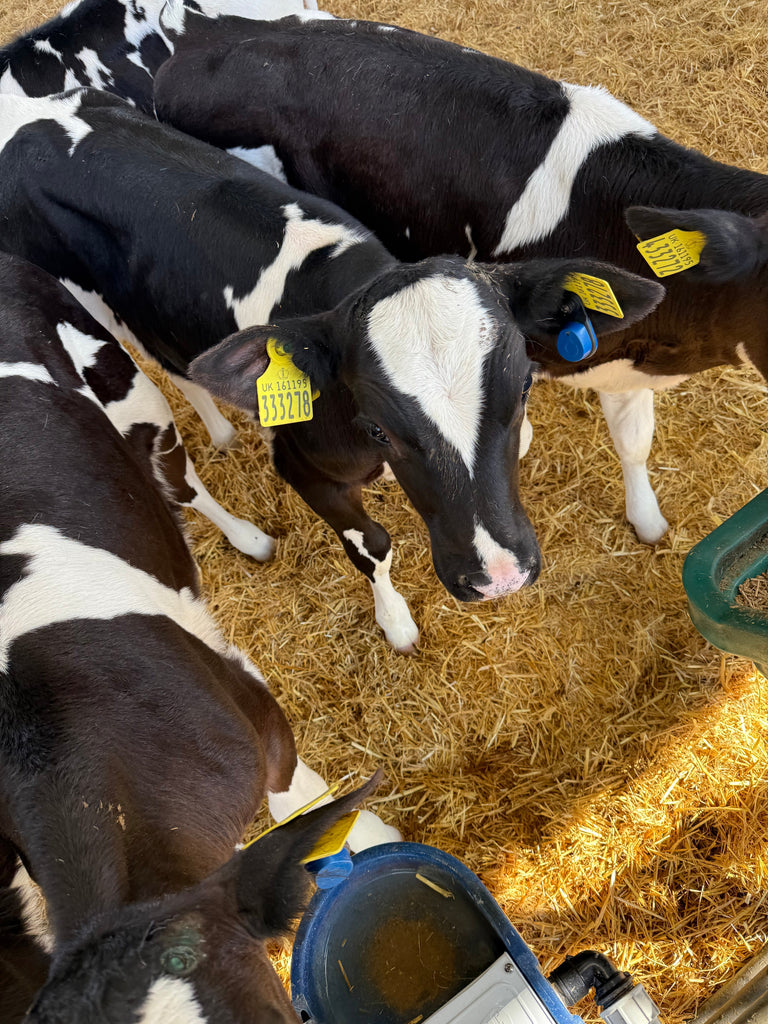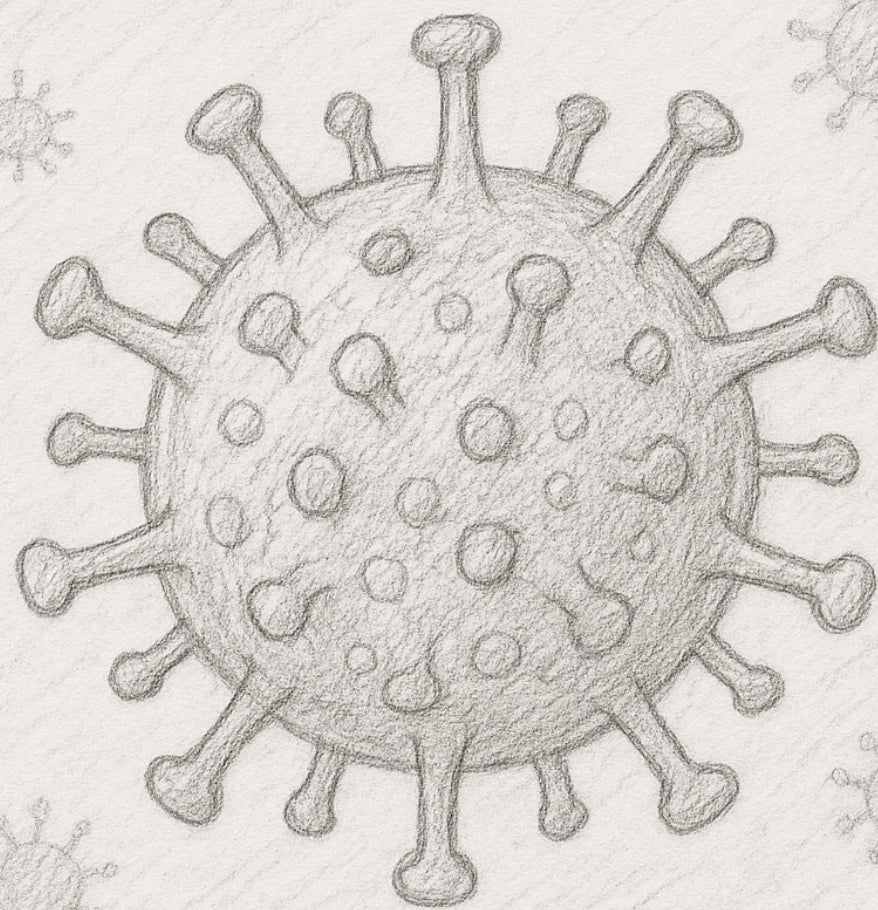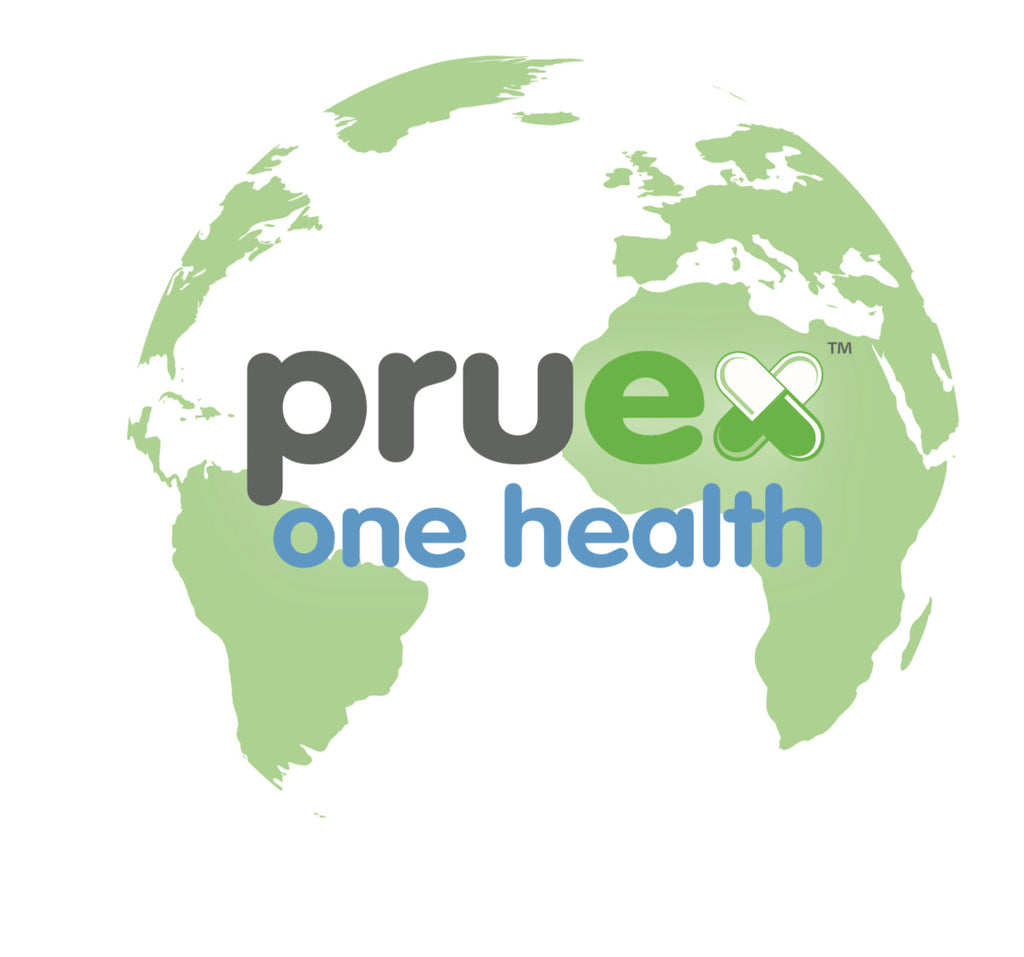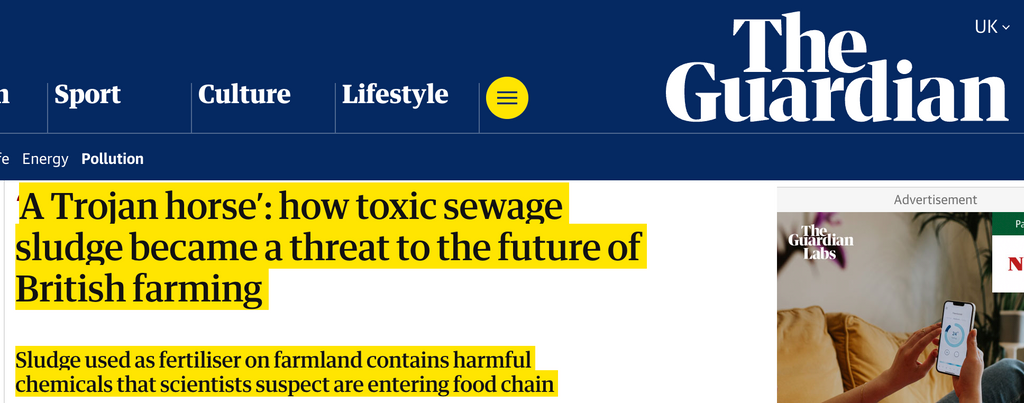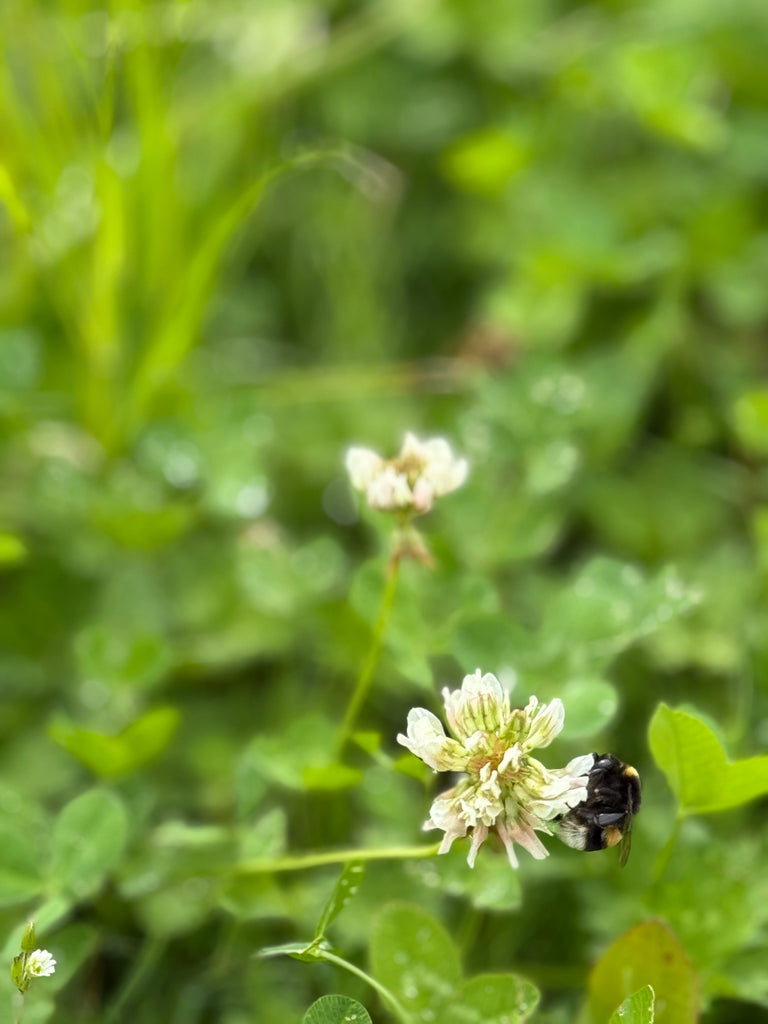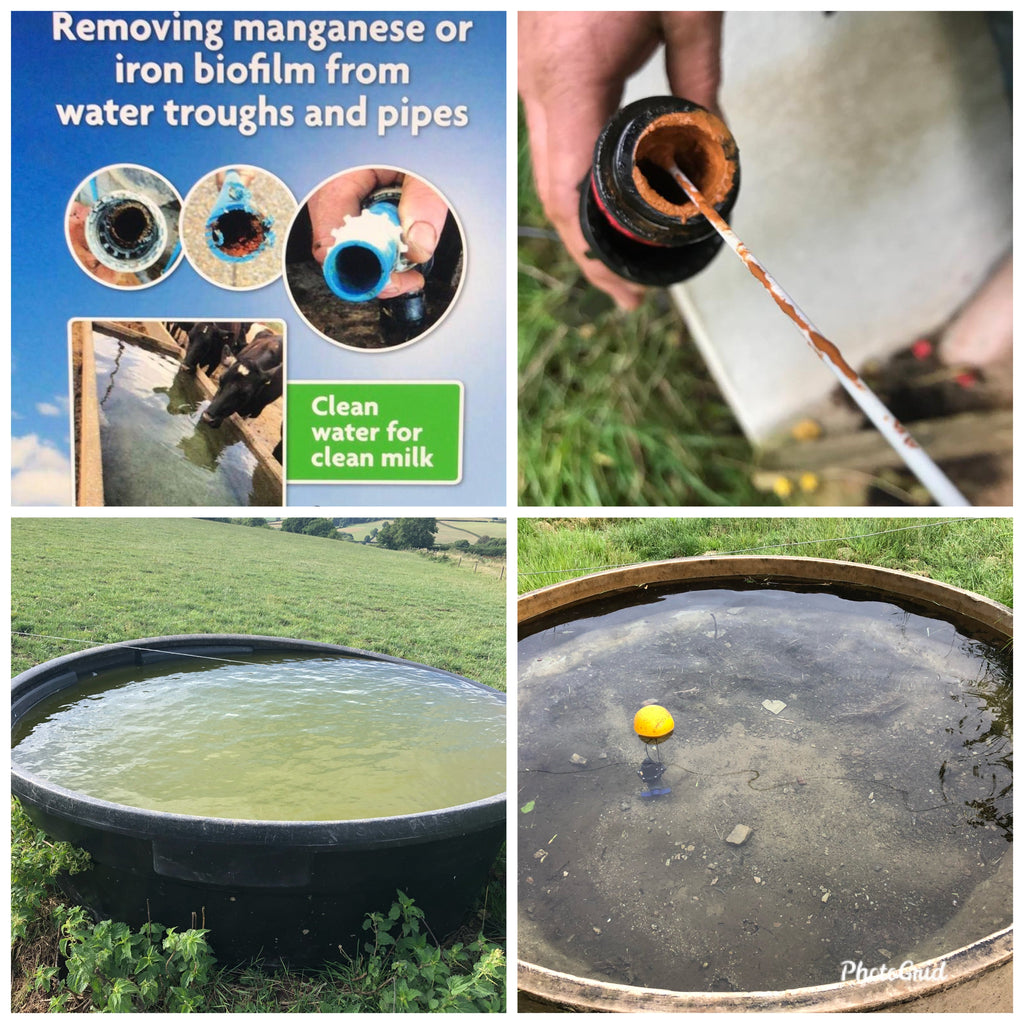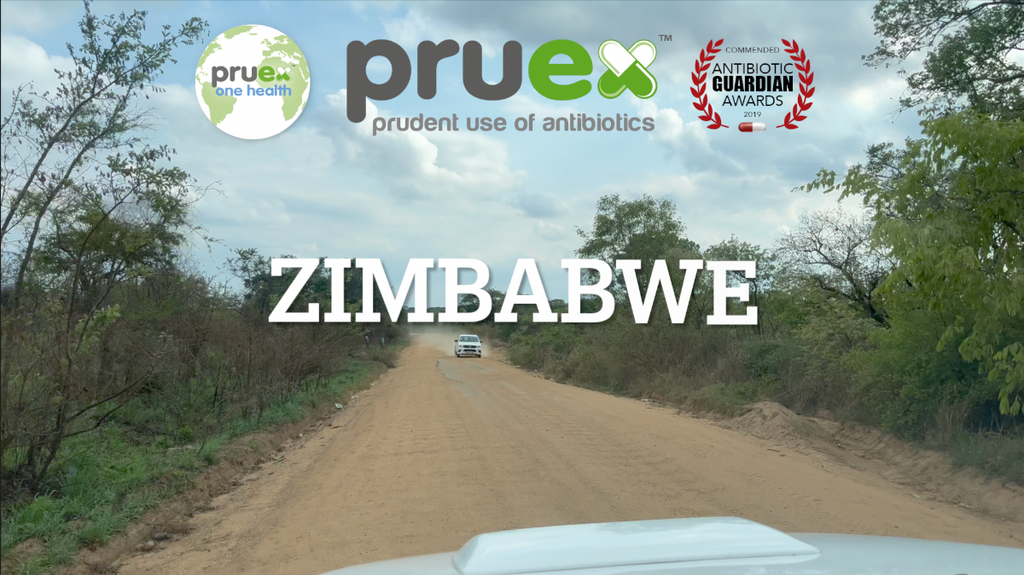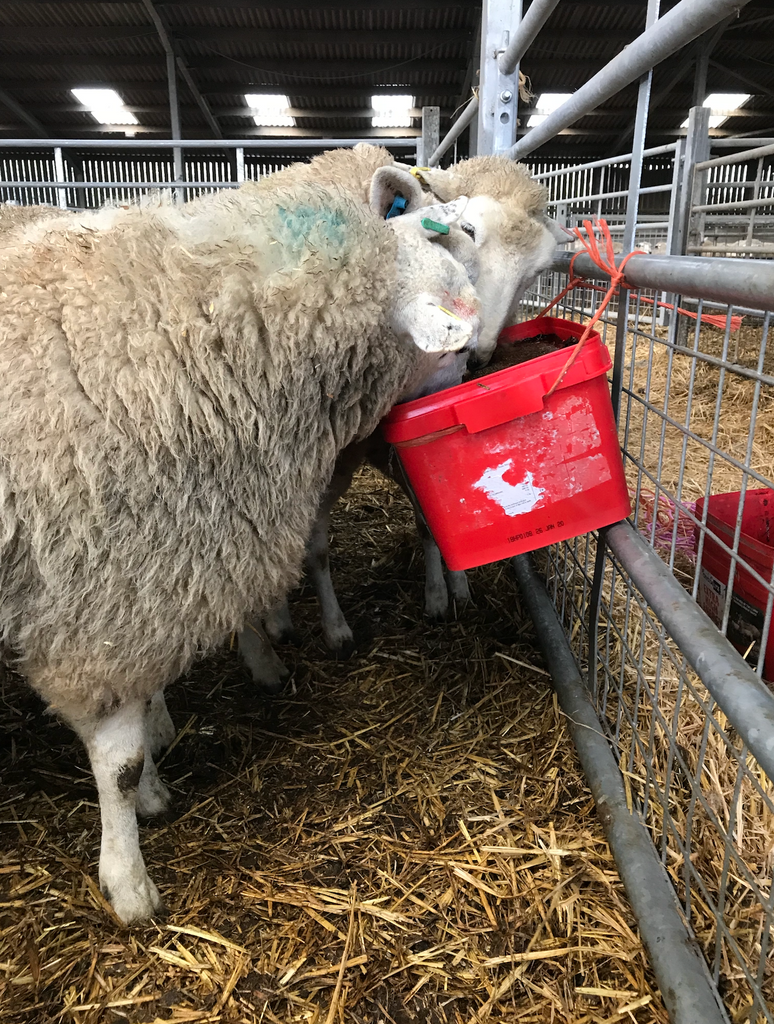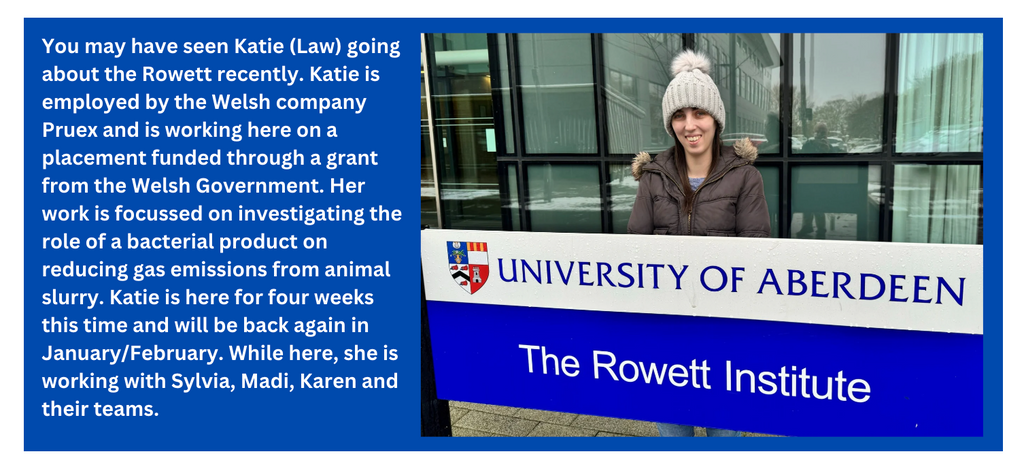News
Calf Scour: Why It Starts in the Environment – and How Pruex Can Help
1. Introduction
Neonatal calf diarrhoea (“calf scour”) remains one of the leading causes of morbidity, mortality and antibiotic use in dairy and beef youngstock systems worldwide (Animal Health Ireland 2021; Trotz-Williams et al. 2007). Scour is not a single disease, but a clinical outcome resulting from disruption of intestinal function caused by infectious agents, environmental stressors and management factors acting together (Constable et al. 2017).
The pathogens most frequently associated with calf scour include bacteria (Escherichia coli, Clostridium perfringens), viruses (rotavirus, coronavirus) and protozoa (Cryptosporidium parvum, Eimeria spp.). However, exposure alone does not explain disease occurrence. Increasingly, research shows that the environment in which the calf is born and reared determines whether disease develops (Calderón-Amor et al. 2020; NADIS 2023).
2. Most calf scour starts in the environment
Environmental hygiene and housing conditions are consistently identified as dominant risk factors for calf scour.
Case–control and cohort studies show that calves reared in wet, contaminated bedding, poorly drained pens and unhygienic calving environments have a significantly higher incidence of diarrhoea (Klein-Jöbstl et al. 2014; Calderón-Amor et al. 2020). These environments increase pathogen survival and dramatically raise the infectious dose calves are exposed to during their most vulnerable early life (Animal Health Ireland 2021).
Drinking-water hygiene is an often-overlooked component of this environment. Biofilms frequently develop in pipes, troughs and buckets, intermittently releasing pathogens such as E. coli into water supplies (Münster et al. 2024). Poor water quality has been linked to reduced immunity, impaired growth and higher calf mortality (Kamal et al. 2024).
Together, these findings support the principle that most calf scour does not start in the calf – it starts in the environment.
3. Biofilms, ammonia and environmental stress
Biofilms allow microorganisms to persist despite routine cleaning and disinfection. Studies show that conventional disinfectants often fail to penetrate established biofilms, allowing rapid recolonisation of surfaces once cleaning stops (Münster et al. 2024).
At the same time, excessive microbial breakdown of organic matter in bedding and on floors drives ammonia production. Although ammonia is best known for its respiratory effects, it is also a reliable indicator of poor environmental biological balance and excessive pathogen pressure (Calderón-Amor et al. 2020).
Chronic environmental stress weakens calves’ natural defence mechanisms, including gut barrier integrity and mucosal function, making it easier for enteric pathogens to attach, colonise and damage the intestinal lining (Constable et al. 2017; NADIS 2023).
4. Protozoa: the overlooked driver of calf scour
Protozoal pathogens, particularly Cryptosporidium parvum and Eimeria spp., are a major but frequently underestimated cause of calf scour.
Cryptosporidium parvum commonly affects calves between 5 and 21 days of age and causes severe villus atrophy, malabsorption and watery diarrhoea (Thomson et al. 2017). Importantly, protozoal oocysts are extremely resistant to commonly used disinfectants, including chlorine and many oxidising agents (Robertson et al. 2014; Ryan et al. 2021).
Oocysts can survive for months in:
- Moist bedding
- Soiled floors
- Calf pens
- Drinking systems and equipment
As a result, the environment becomes the primary reservoir of infection, not the calf (Thomson et al. 2017). There is no broadly effective curative treatment for cryptosporidiosis; control relies almost entirely on environmental management and reduction of exposure (Animal Health Ireland 2021).
5. Why antibiotics and disinfectants alone fall short
Antibiotics do not address dehydration, do not repair intestinal damage and are ineffective against viral and protozoal causes of scour. Furthermore, repeated antibiotic use contributes to antimicrobial resistance, a major One Health concern (WHO 2020).
Similarly, repeated chemical disinfection without addressing underlying biofilm and environmental biology often leads to rapid pathogen rebound. This “clean–dirty cycle” leaves calves repeatedly exposed during early life (Münster et al. 2024).
6. How Pruex helps: fixing the environment first
Pruex takes an environment-first approach by guiding microbial ecology toward stability rather than sterility.
Using selected beneficial Bacterial species, Pruex works by:
- Establishing positive biofilms in water systems, reducing pathogen-dominated biofilm formation on troughs and pipes
- Improving bedding and floor biology, slowing the breakdown of organic matter into ammonia-producing compounds
- Creating drier, less pathogenic conditions that limit protozoal persistence
- Reducing environmental stress so calves can maintain gut integrity and immune competence
The concept of managing surfaces to favour beneficial, non-infective microbial communities is increasingly recognised as a sustainable disease-prevention strategy in livestock systems (Bastos et al. 2022).
7. Environmental health, calf health and antibiotic reduction
By lowering pathogen pressure in water, bedding and housing environments, calves encounter fewer bacteria, viruses and protozoa during early life.
Studies show that Bacterial detergent based interventions can reduce diarrhoea incidence and improve calf growth, supporting the principle behind Pruex’s approach (Le et al. 2016). Healthier calves require fewer treatments, less labour intervention and reduced antibiotic use, aligning calf performance with antimicrobial stewardship goals (Animal Health Ireland 2021; WHO 2020).
8. Conclusion
Most calf scour does not start in the calf – it starts in the environment. Dirty bedding, biofilm-contaminated water systems, ammonia-rich housing and protozoa-friendly conditions combine to increase pathogen exposure and overwhelm the immature calf gut.
Because key scour agents such as Cryptosporidium are highly resistant to disinfectants, prevention depends on managing the biological environment, not merely reacting once calves are sick. Pruex supports this by restoring microbial balance in water, bedding and floors. When environmental biology is stable, calves are more resilient, scour incidence is reduced, and reliance on antibiotics falls.
References
Animal Health Ireland. 2021. Management of the Scouring Calf. AHI, Dublin.
Bastos, C., Faciola, A.P., and Franz, E. 2022. Positive biofilms to guide surface microbial ecology in livestock environments. One Health 14:100386.
Calderón-Amor, J., Gallo, L., Vitali, A., et al. 2020. Dairy calf welfare and factors associated with diarrhea and respiratory disease. Animals 10(11):2070.
Constable, P.D., Hinchcliff, K.W., Done, S.H., and Grünberg, W. 2017. Veterinary Medicine. 11th ed. Elsevier, London.
Kamal, M.A., Rashad, A.M., and El-Sayed, A. 2024. Effect of drinking water quality on immunity and mortality in dairy calves. Archives of Animal Breeding 67:25–38.
Klein-Jöbstl, D., Iwersen, M., and Drillich, M. 2014. Farm characteristics and calf management practices associated with diarrhea. Journal of Dairy Science 97(8):5110–5119.
Le, O.T., Dart, P.J., Harper, K., et al. 2016. Effect of probiotic Bacillus amyloliquefaciens H57 on diarrhoea in dairy calves. Animal Production Science 56:1990–1998.
Münster, P., Heitmann, S., and Truyen, U. 2024. Drinking-water biofilm development in livestock systems. Frontiers in Animal Science 5:1467287.
NADIS. 2023. Calf Scour in Beef and Dairy Rearing Units. NADIS, UK.
Robertson, L.J., Björkman, C., Axén, C., and Fayer, R. 2014. Cryptosporidiosis in farmed animals. Parasitology 141:1455–1475.
Ryan, U., Fayer, R., and Xiao, L. 2021. Cryptosporidium in humans and animals. Clinical Microbiology Reviews 34:e00062-19.
Thomson, S., Hamilton, C.A., Hope, J.C., et al. 2017. Bovine cryptosporidiosis and control strategies. Veterinary Research 48:42.
Trotz-Williams, L.A., Jarvie, B.D., Martin, S.W., et al. 2007. Calf-level risk factors for neonatal diarrhoea. Preventive Veterinary Medicine 82:12–28.
World Health Organization. 2020. Antimicrobial Resistance. WHO,
5 Common Mistakes Poultry Farmers Make with Bird Flu — and How Pruex Fixes What Disinfectants Can’t
Avian influenza (bird flu) remains one of the most disruptive threats to global poultry production. While many farmers reach immediately for stronger disinfectants, the science shows a recurring pattern: disinfectants alone cannot address the biological weaknesses in poultry environments that allow viruses to spread.
Here are five common mistakes poultry farmers make — and how Pruex offers practical, biological solutions that disinfectants simply cannot match.
1. Mistake: Drying out and damaging the birds’ natural mucus barrier**
Many disinfectants added to drinking water — including hydrogen peroxide and chlorine-based products — oxidise or dry the mucus that lines a bird’s upper respiratory tract. This mucus barrier is the bird’s *first line of defence* against airborne viruses.
Why disinfectant fails: It weakens that barrier and creates vulnerability.
How Pruex fixes it:
Pruex improves water hygiene using stable Bacillus biofilms that do **not** oxidise or strip mucus. Birds maintain a healthy mucosal layer, meaning they’re better equipped to trap and neutralise incoming pathogens like avian flu.
2. **Mistake: Believing a “clean smell” means a safe environment**
Disinfectants may temporarily stop odour but do nothing to tackle the underlying biological imbalance. Ammonia, biofilm, wet litter, and fermentation continue — all of which weaken birds and increase virus susceptibility.
Why disinfectant fails: It only kills on contact and then stops working.
How Pruex fixes it:
Pruex bacteria form a **protective, positive biofilm**, outcompeting harmful organisms 24/7. Stable bedding biology reduces ammonia, improves litter quality, and prevents the stress that makes birds more vulnerable to bird flu.
3. *Mistake: Over reliance on surface disinfection instead of fixing waterline biofilm**
Avian flu can spread more easily in flocks with compromised immunity. Many farms disinfect surfaces aggressively but ignore waterlines — which often contain oxidised biofilm, dead bacteria, and residues that affect bird health and vaccine uptake.
Why disinfectant fails: It doesn’t penetrate old, layered biofilm effectively.
How Pruex fixes it: Pruex establishes beneficial Bacillus biofilm throughout the water system. This:
- stabilises water quality
- eliminates harmful biofilm
- improves hydration
- reduces stress load
All of which help birds resist disease pressure — including viruses.
4. Mistake: Allowing bedding biology to ferment
Wet, acidic litter increases ammonia and produces volatile compounds that irritate airways. This primes birds for infection — exactly what avian flu exploits.
Why disinfectant fails:
You can’t disinfect your way out of fermentation.
How Pruex fixes it:
Pruex keeps litter biologically stable:
- lower ammonia
- reduced wetness
- improved foot and respiratory health
This reduces stress signals that weaken birds’ immune function.
5. Mistake: Thinking bird flu is only about “biosecurity at the gate”
Most biosecurity protocols focus on disinfecting boots, wheels, and equipment. But viruses exploit weaknesses *inside* the house — poor air, compromised mucus, stress, and disrupted microbiology.
Why disinfectant fails:
No disinfectant can create a resilient environment.
How Pruex fixes it:
Pruex delivers a "One Health" system that builds resilience:
- healthier water
- stable bedding
- improved air quality
- reduced ammonia
- beneficial biofilm dominating harmful microbes
A healthier environment results in stronger, more resistant birds — which is the real defence against avian influenza.
Conclusion
Bird flu thrives where birds are stressed, mucus barriers are compromised, and bedding biology is unstable. Disinfectants cannot fix these problems — they only kill on contact.
Pruex offers a biologically intelligent solution that strengthens the birds, stabilises the environment, and reduces disease vulnerability in ways disinfectants simply cannot.
The science bit:
Protecting the Mucus Barrier: Why Oxidisers in Drinking Water May Increase Viral Risk in Poultry
Respiratory health in poultry starts long before a virus ever reaches a cell. One of the most important — and often overlooked — components of avian immunity is the mucus layer that lines the mouth, throat, crop and upper airways.
This thin, sticky layer traps viruses like Avian Influenza (AI) and Newcastle Disease Virus (NDV) before they can attach to receptors in the respiratory tract. If the mucus barrier is damaged, the bird becomes more vulnerable — even if stocking density, vaccination, and ventilation are good.
Yet on many farms, this natural barrier is unintentionally weakened by oxidising disinfectants added to drinking water, especially hydrogen peroxide.
At Pruex, we believe in working with biology, not against it. Understanding the science behind the mucus barrier shows why this matters so much.
1. The mucus barrier is the bird’s first line of defence The avian respiratory system relies heavily on mucus to trap and neutralise pathogens. Studies show: - Mucus forms the primary physical defence against viruses such as Avian Influenza (Alexander, 2007). - Viral particles bind to sialic acids in mucus, preventing them from reaching target cells (Zanin et al., 2016). - A healthy mucociliary escalator carries trapped pathogens away from the lungs.
2. Anything that dries, thins, or oxidises mucus weakens this defence Oxidative stress — whether from ammonia, dust, chemical aerosols, or oxidisers in drinking water — causes thinning of the mucus layer, denaturation of mucin proteins, impaired cilia function, epithelial irritation, and increased permeability of the airway lining.
This is well established: oxidisers such as hydrogen peroxide damage mucins and epithelial cells, reducing the effectiveness of the barrier (Rahman & MacNee, 2000). Classic poultry studies also show that when the mucosa is irritated or damaged, birds become more susceptible to respiratory pathogens (Anderson et al., 1964).
3. So does hydrogen peroxide increase the risk of Avian Flu? There is no published study directly proving that hydrogen peroxide in drinking water increases susceptibility to Avian Influenza. But the scientific mechanism is clear: - Birds rely on mucus to block viral entry. - Oxidisers damage mucus and epithelium. - Damaged mucus = increased viral invasion risk.
4. The Pruex approach: protect the mucus barrier Pruex does not use oxidising chemistry. Instead, we stabilise environmental biology: improving drinking-water quality, reducing ammonia and dust, balancing bedding microbiology, and supporting natural mucosal immunity.
Healthy biology supports a healthy mucus layer — and that supports healthier birds.
References: Alexander, D.J. (2007) ‘An overview of avian influenza’, World’s Poultry Science Journal, 63(2), pp. 161–173. Zanin, M. et al. (2016) ‘The interaction between respiratory pathogens and mucus’, Nature Reviews Microbiology, 14(12), pp. 768–777. Rahman, I. and MacNee, W. (2000) ‘Oxidative stress and regulation of glutathione in lung inflammation’, European Respiratory
Journal, 16(3), pp. 534–554. Anderson, D.P., Beard, C.W. and Hanson, R.P. (1964) ‘Influence of ammonia on the development of air sac lesions in chickens’, Avian Diseases, 8(3), pp. 369–379.
We’re hiring.
We’re Hiring: Technical Sales Person (South West England) – Perfect for a First Sales Role!
Pruex is growing — and we’re looking for a motivated young person to join our team in the South West of England.
If you love agriculture, have an interest in science, and get a buzz from solving problems, this could be the perfect opportunity.
About the Role:
As a Technical Sales Person, you’ll work closely with existing Pruex customers and help develop new business across farms in the region. You’ll be hands-on across dairy, beef, sheep, broiler, layer, game, and pig sectors — supporting farmers to tackle the root causes of animal health problems, not just the symptoms.
Who We Are:
Pruex is a One Health company, working across the human, pet, and farm sectors. Our mission is simple:
*Reduce pollution
*Improve animal health
*Protect antibiotics
*Help farms produce food sustainably
And we’ve got the science, technology, and field experience to back that up.
Ideal Candidate:
Interested in agriculture and how real farms work. Curious about science and biology. Loves problem-solving and thinking outside the box. Full UK driving licence. Confident engaging with people. Passionate about making farming more sustainable
You don’t need previous sales experience.
You do need enthusiasm, willingness to learn, and the ability to spot what’s really causing problems on farm.
What You’ll Get:
*Full training
*Support from a highly experienced team
*Opportunity to build a career in technical agricultural work
*The chance to make a genuine impact on animal health and the environment
How to Apply:
Send us your CV and a cover letter, or if you prefer, a short video telling us why you’re the ideal candidate.
Email: info@pruex.co.uk
Join Pruex – helping farmers produce healthier animals, healthier food, and a healthier planet.
#Pruex #OneHealth #AgriJobs #SouthWestJobs #TechnicalSales #SustainableFarming #YoungPeopleInAg #Dairy #Beef #Sheep #Poultry #Pigs #RegenerativeAgriculture #AMR #AgriCareers
Danger, danger - pollution. But Pruex has the answer
Pruex offers a solution by replacing toxic, pathogen-laden sludge with beneficial bacteria that safely stabilise waste on-farm. Our soil bacteria-based approach reduces ammonia, methane, and pathogen load—avoiding reliance on external sludge. Pruex ensures that sustainable intensification enhances, rather than harms, soil, water, food safety, and long-term farm resilience.
Pruex: Replacing Toxic Sludge with On-Farm Biosecurity Solutions
The growing alarm over sewage sludge containing PFAS, pharmaceuticals, microplastics, and hormone disruptors highlights a serious flaw in how Britain manages waste and fertiliser use. Farmers face a false choice: apply cheap but contaminated sludge, or pay for synthetic inputs. Pruex offers a third, safer path — one that protects both productivity and the environment.
Since 2016, Pruex has developed bacterial systems that allow waste to be treated and stabilised on-farm using natural microbes, rather than relying on sludge from wastewater treatment plants. By applying beneficial bacteria at key points — water troughs, bedding, and slurry channels — we replace pathogenic, fermentative, and polluting microbes with controlled, respiration-dominant microbial communities. This process retains nitrogen as ammonium, reduces ammonia and methane emissions, and minimises the formation of toxic byproducts.
Unlike sewage sludge, Pruex slurry contains no unknown contaminants. Instead, it enriches soil health, supports biodiversity, and improves silage quality — all while improving animal health and reducing the need for antibiotics.
Pruex shows that farmers don’t have to compromise. By managing waste at its source with trusted microbes, we can end the dependency on hazardous sludge and build a truly circular, safe, and productive agricultural system.
Pruex: Enabling a Greener, More Productive Future for Agriculture
Pruex was founded by Aled Rhys Davies as a result of his 2015 Nuffield Scholarship with a clear ambition: to prove that it is possible to ensure prudent as opposed to excessive antibiotic use and improve agricultural production while simultaneously reducing pollution. In a sector often forced to choose between profitability and sustainability, we set out to demonstrate that better animal health and performance can go hand-in-hand with cleaner air, water, and soil. Our work has since become a blueprint for how intensive farming can be both environmentally beneficial and economically viable.
One of our most impactful achievements has been in the broiler sector, where the application of Pruex bacteria to water, litter, and air systems has resulted in a 3% improvement in feed conversion ratio (FCR). This gain has been consistently linked to reductions in environmental ammonia and methane—two major pollutants in confined poultry operations. By replacing opportunistic pathogens and fermentative microbes with structured healthy biofilm-forming bacteria, Pruex interventions maintain bird health and energy efficiency within sheds. Lower stress, improved feed intake, and fewer disease challenges mean birds convert feed into growth more efficiently.
In dairy farming, Pruex has demonstrated that reducing pollution improves not only the environment but the productivity of cows and the land that supports them. Our treatment protocol improves housing hygiene by replacing fermentative breakdown in slurry with controlled bacterial respiration. This retains more plant-available nitrogen as ammonium and significantly reduces ammonia volatilisation. Treated slurry applied to land supports better soil biology, resulting in higher biodiversity, earthworms, and improved silage quality. On trial farms, treated slurry led to increased sugar and true protein levels in silage, with no need for synthetic fertiliser.
Beyond the slurry pit, Pruex also improves air quality in housing, reducing respiratory stress in dairy cows and calves. Healthier animals have lower vet bills, reduced lameness, and better milk yields. Clean water troughs treated with Pruex prevent biofilm formation by harmful bacteria, improving hydration and feed intake. The knock-on effects on animal behaviour, fertility, and welfare are clear.
In each case, the environmental benefits are not trade-offs—they are the pathway to improved performance. By applying science to prevent pollution at its source, we reduce disease pressure and unlock animal potential. This is a profound shift in the way agriculture views sustainability: from burden to opportunity.
Pruex has also worked internationally to ensure its innovations are accessible. We have established subsidiaries in the EU and Africa, tailoring solutions to local farming systems. Whether it's poultry farming in Zimbabwe or dairy operations in Poland, the core principles—prevent pollution, promote health—remain the same.
This work, backed by trial data and delivered in partnership with forward-thinking farmers, has demonstrated that a greener future for agriculture is not just desirable—it is achievable now. Pruex is proud to contribute to this transformation. We believe that by enabling cleaner, safer, and more productive farming systems, we are not only protecting the environment—we are shaping the future of agriculture itself.
Our journey proves that farming doesn’t have to compromise: with the right science, we can grow more by polluting less.
Biofilm in water can lead to AMR
January in Co Wexford. Pruex got some fantastic feedback from the visitors at an open day.
In the video below, Pruex demonstrate how they achieve clean air and water which really does reduce the threat of AMR
Travelling scientist to help reduce agricultural pollution
Wales is at the forefront of innovation that can help agriculture be the solution to many environmental pollution issues. Pruex have pioneered research that's now enabling farmers to use bacteria that originate in soil to compete against bad bacteria in animal waste. The bad bacteria and enzymes in faeces and urine can cause animal sickness via infections and/or aid in the process of rotting manure which releases toxic greenhouse gasses like nitrous oxide and methane as well as toxic ammonia gas to the air the animals breathe. These pollutive gasses are harmful to the wider environment.
Pruex help farmers keep their animals healthy by providing good bacteria that can compete for resources with faecal bacteria and thus reduce the health risk to animals and the environment. Less ammonia, less nitrous oxide, less methane.
Keeping soil and all the microflora that it contains healthy requires domination of aerobic conditions. Pruex strive to ensure muck and slurry from farms remain aerobic so as not to poison the land when farm waste is applied. This strategy helps plants develop deep roots helping the soil retain water, and reduces run off of polluting minerals like phosphorus and nitrogen.
Pruex improve the environment in which farm animals are kept. This changes their waste from problematic for soil and plants to synergistic. As a result, plants are healthier, soil becomes more fertile and a home for more biodiversity, and there is less drought or flood risk. The health of our rivers and waterways depend on healthy soil. The plants which feed the animals have deeper roots that can access more trace elements and minerals. There simply is no better example of a natural circular economy.
Our research continues. Please work with us to help us achieve our aims of leading the fight against antimicrobial resistance and environmental pollution.
Highly contagious superbug is resistant to antibiotics and hitting UK
Find out more about the superbug that's resistant to antibiotics hitting the UK
Superbug killing people in the UK - Article
Friday, November 22, 2024 11.30am Hall 1B, ACC Liverpool, Federation of Infection Societies Conference. A landmark moment, where professor Elisabetta Caselli of the University of Ferrara and Aled Rhys Davies of Pruex will present Bacterial detergents to the NHS as a means of fighting back against superbugs. The technology is used in hospitals in Europe and in addition to reducing antimicrobial resistance (AMR), in wards it reduces the number of infections acquired by patients whilst in those hospitals and in addition, saves the hospital management large sums of money.


